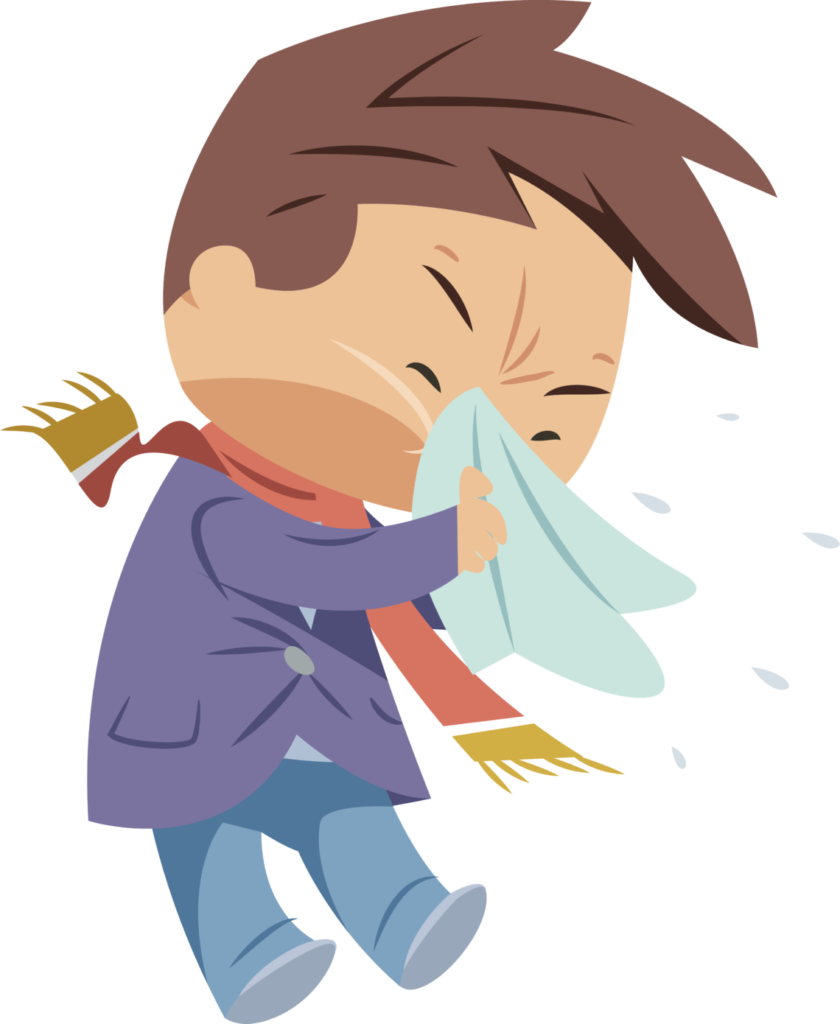It’s Flu Season
Article By Brazos County Health District
There are some things you can count on when fall comes: football, pumpkins, sweaters, and unfortunately, influenza (the flu). While seasonal flu can happen any time of the year, flu viruses are most common during the fall and winter. This is when it is important for senior citizens to be proactive and takes steps to prevent catching the flu.
The flu is a highly-contagious respiratory illness caused by influenza viruses. Illnesses can be mild to severe. Symptoms include fever, cough, sore throat, runny or stuffy nose, body aches, headache, chills, and fatigue. Some people may also have vomiting and diarrhea. People may be infected with the flu and have respiratory symptoms without a fever. Adults 65 and older are at high risk of serious flu complications. Senior citizens are at an increased risk of getting the flu because they often have weaker immune systems. It is common for them to have a lower protective immune response after flu vaccination compared to younger, healthier people. This can make them more susceptible to the flu. Serious side effects of flu infection can result in hospitalization or death. The best way to prevent flu and its side effects is by getting vaccinated each year.
October is one of the best times to get the flu vaccine. Flu numbers are relatively low, and the vaccine will last through the peak of the flu season. Flu vaccines are updated each season as needed to keep up with changing viruses. Also, immunity wanes over a year so annual vaccination is needed to ensure the best possible protection against influenza. A flu vaccine protects against the flu viruses that research indicates will be most common during the upcoming season.
Immunity from vaccination sets in after about two weeks. Although immune responses may be lower in the elderly, vaccine effectiveness has been similar in most flu seasons among older adults and those with chronic health conditions compared to younger, healthy adults. Despite the fact that older adults have weaker immune responses to flu vaccines, there are many reasons why people in that age group should be vaccinated each year.
People 65 and older should get a flu shot and not a nasal spray vaccine. They should talk to their health care providers about getting the high dose flu vaccine or the adjuvanted flu vaccine. The high dose flu vaccine contains four times the amount of antigen than a regular flu shot. This causes a significantly stronger response in the immune system, making the recipient more resistant to the flu. One study found that seniors 65 and older who received the high dose flu vaccine were almost 25% less likely to get the flu than those who received the standard dose. The adjuvanted flu vaccine, or Fluad, is made with an additive called MF59 adjuvant. This additive creates a stronger response in the immune system.
High dose flu vaccines are available at the Brazos County Health District during normal vaccination clinic hours: Monday: 8:30 am – 11:30 am, Tuesday: 9:00 am – 11:30 am and 2:00 pm – 5:30 pm, Wednesday: 8:30 am – 11:30 am, and Friday: 10:00 am – 11:30 am. Call 979-361-4440 for availability and eligibility.
Along with flu vaccines, there are other steps than can help prevent the flu. Covering coughs and sneezes with your elbow keeps the flu virus from spreading through mucous and saliva. While hand sanitizer is a convenient way to kill germs, nothing beats washing your hands in warm water with a mild soap. Lastly, avoid being around people who are sick. Although it may be tempting to bring your family a thermos of homemade soup, avoid contact until their fever has been gone for at least a week for adults, and two weeks for children.
Because flu can be more severe for senior adults, they and their caretakers should be aware of when to obtain medical care. Seniors with the flu should go to the hospital if they have any of the following: difficulty breathing or shortness of breath; persistent pain or pressure in the chest or abdomen; persistent dizziness, confusion, inability to arouse; seizures; not urinating; severe muscle pain; severe weakness or unsteadiness; fever or cough that improve but then return or worsen; and/or worsening of chronic medical conditions.

